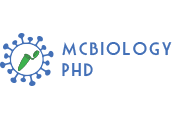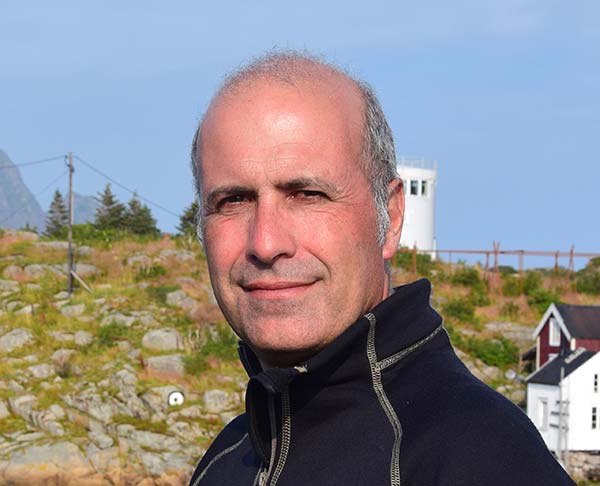Author of more than 120 papers in international refereed journals. Two patents. H-index: 44 according to Scopus, 49 according to Google scholar. Citations > 2900 (data from Scopus or ISI WOS).
Francesco Cecconi is Deputy Director, Center of Excellence for Autophagy, Recycling and Disease (CARD), Danish National Research Foundation, Copenhagen, DK and Coordinator of the PhD School in Molecular Cell Biology, University of Tor Vergata, Rome, I. He is EMBO member and serves or has served as expect member in the Steering Committee of the Italian Society of Molecular Biology (SIBBM; 2009-2012), Associazione Italiana per la Ricerca sul Cancro (AIRC; 2011-2014), the Danish Cancer Society Grant Agency (KBVU; since 2015), the EMBO Fellowship Committee (since 2017) the ERC Advanced Grant Program (since 2017).
Funding
In Italy, Francesco Cecconi has been and is presently** supported by AIRC**, The Telethon Foundation**, FISM**, Fondazione Roma**, The Ministry of Health (Ricerca Corrente and Ricerca Finalizzata) and the Ministry of Research (FIRB and PRIN), FILAS – Regione Lazio.
In Denmark, Francesco Cecconi has been supported by, and Headed as PI, six Grants from diverse Danish Foundations (i.e. Novo Nordisk, KBVU, Lundbeck, Danish National Research Foundation) and by the European Union’s Horizon 2020 research and innovation programme under the Marie Sklodowska-Curie (Mel-Plex).
Research field
Francesco Cecconi group is among the most prominent European teams in the key cellular process of autophagy. In particular, they discovered AMBRA1 as a member of the vertebrate autophagy core complex and as an essential factor in brain development, and in controlling cell proliferation, death and differentiation. The team is committed in elucidating the role of autophagy in cancer and neurodegeneration and in identifying novel factors in autophagy upstream regulation.
Selected Publications within the last 10 years
- Capizzi M, Strappazzon F, Cianfanelli V, Papaleo E, Cecconi F. (2017) MIR7-3HG, a MYC-dependent modulator of cell proliferation, inhibits autophagy by a regulatory loop involving AMBRA1. Autophagy 13:554-566.
- Strappazzon F, Di Rita A, Cianfanelli V, D’Orazio M, Nazio F, Fimia GM, Cecconi F. (2016) Prosurvival AMBRA1 turns into a proapoptotic BH3-like protein during mitochondrial apoptosis. Autophagy 12:963-975.
- Nazio F, Carinci M, Valacca C, Bielli P, Strappazzon F, Antonioli M, Ciccosanti F, Rodolfo C, Campello S, Fimia GM, Sette C, Bonaldo P, Cecconi F. (2016) Fine-tuning of ULK1 mRNA and protein levels is required for autophagy oscillation. J Cell Biol. 215:841-856.
- Cianfanelli V, De Zio D, Di Bartolomeo S, Nazio F, Strappazzon F, Cecconi F. (2015) Ambra1 at a glance. J Cell Sci. 128:2003-2008.
- Cianfanelli V, Fuoco C, Lorente M, Salazar M, Quondamatteo F, Gherardini PF, De Zio D, Nazio F, Antonioli M, D’Orazio M, Skobo T, Bordi M, Rohde M, Dalla Valle L, Helmer-Citterich M, Gretzmeier C, Dengjel J, Fimia GM, Piacentini M, Di Bartolomeo S, Velasco G, Cecconi F. (2015) AMBRA1 links autophagy to cell proliferation and tumorigenesis by promoting c-Myc dephosphorylation and degradation. Nature Cell Biol. 17:20-30.
- Filomeni G, De Zio D, Cecconi F. (2015) Oxidative stress and autophagy: the clash between damage and metabolic needs. Cell Death Differ. [Epub ahead of print] Review. PubMed PMID: 25257172.
- Strappazzon F, Nazio F, Corrado M, Cianfanelli V, Romagnoli A, Fimia GM, Campello S, Nardacci R, Piacentini M, Campanella M, Cecconi F. (2015) AMBRA1 is able to induce mitophagy via LC3 binding, regardless of PARKIN and p62/SQSTM1. Cell Death Differ.
- Nazio F, Strappazzon F, Antonioli M, Bielli P, Cianfanelli V, Bordi M, Gretzmeier C, Dengjel J, Piacentini M, Fimia GM, and Cecconi F. (2013) mTOR inhibits autophagy by controlling ULK1 ubiquitination, self-association and function via AMBRA1 and TRAF6. Nature Cell Biol. 15:406-416.
- D’Amelio M, Sheng M, Cecconi F. (2012) Caspase-3 in the central nervous system: beyond apoptosis. Trends Neurosci. 35:700-709.
- Strappazzon F, Vietri-Rudan M, Campello S, Nazio F, Florenzano F, Fimia GM, Piacentini M, Levine B and Cecconi F. (2011) Mitochondrial BCL-2 inhibits AMBRA1-induced autophagy. The EMBO J., 30, 1195-1208.
- D’Amelio M, Cavallucci V, Middei S, Marchetti C, Pacioni S, Ferri A, Diamantini A, De Zio D, Carrara P, Battistini L, Moreno S, Bacci A, Ammassari-Teule M, Marie H and Cecconi F. (2011) Caspase-3 triggers early synaptic dysfunction in a mouse model of Alzheimer’s Disease. Nature Neurosci. 14, 69-76.
- De Zio D, Bordi M, Tino E, Lanzuolo C, Ferraro E, Mora E, Ciccosanti F, Fimia GM, Orlando V, Cecconi F. The DNA repair complex Ku70/86 modulates Apaf1 expression upon DNA damage. Cell Death Differ. 2010 Oct 22. [Epub ahead of print].
- Di Bartolomeo S, Corazzari M, Nazio F, Oliverio S, Lisi G, Antonioli M, Pagliarini V, Matteoni S, Fuoco C, Giunta L, D’Amelio M, Nardacci R, Romagnoli A, Piacentini M, Fimia GM and Cecconi F. (2010) The dynamic interaction of Ambra1 with the dynein motor complex regulates mammalian autophagy. J Cell Biol. 191, 155-168.
- Cecconi F and Levine B. (2008). The role of autophagy in mammalian development: cell makeover rather than cell death. Dev Cell. 15, 344-357.
- Fimia GM, Stoykova A, Romagnoli A, Giunta L, Di Bartolomeo S, Nardacci R, Corazzari M, Fuoco C, Ucar A, Schwartz P, Gruss P, Piacentini M, and Cecconi F. (2007). Ambra1 regulates autophagy and development of the nervous system. Nature. 447: 1121-1125.


